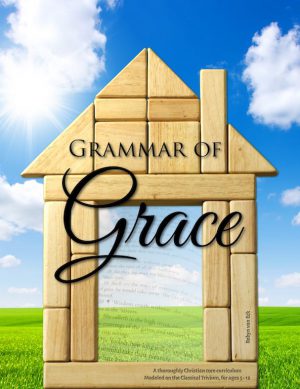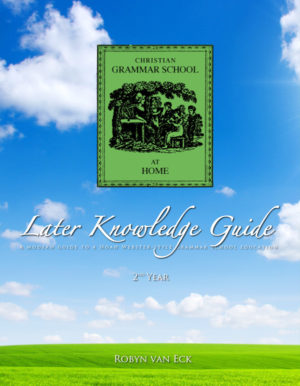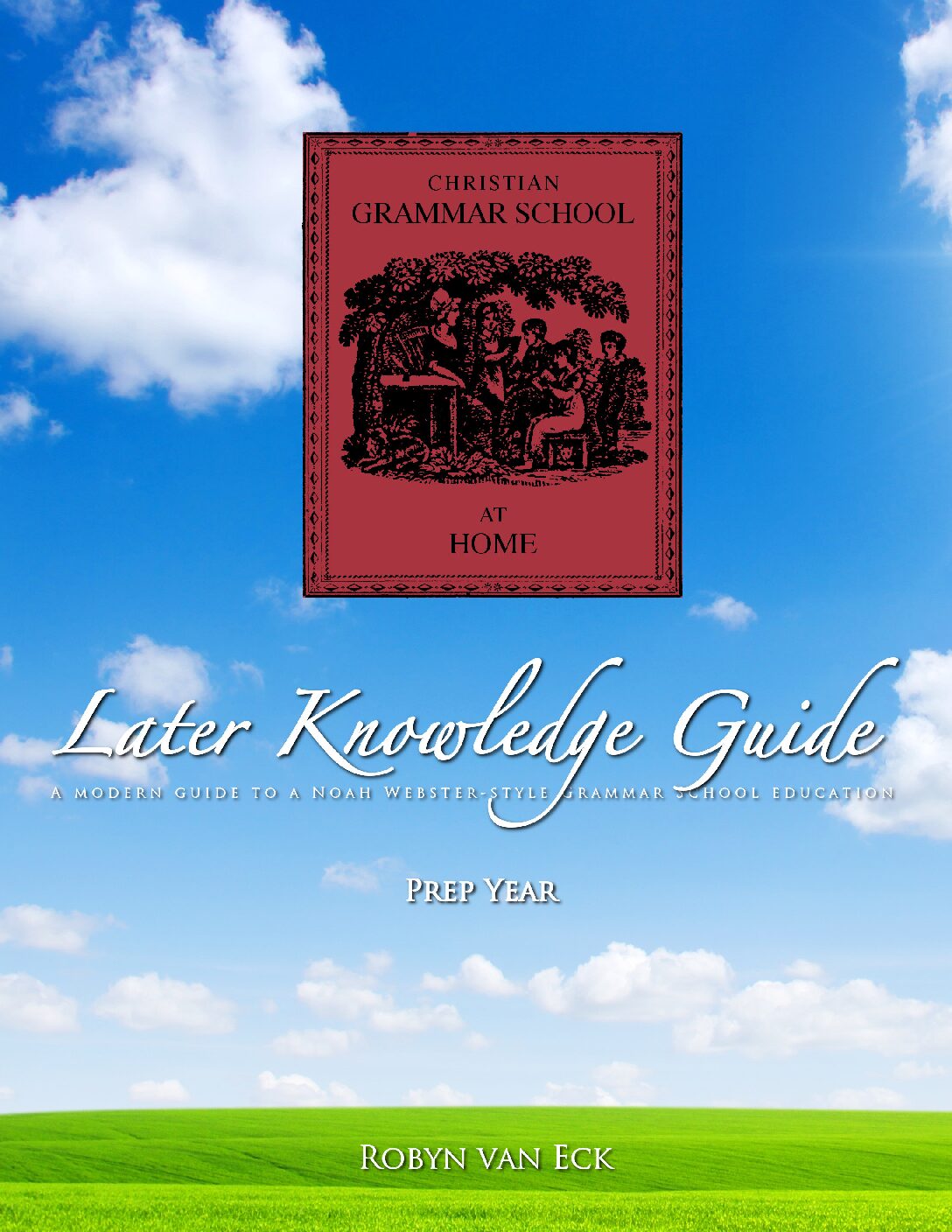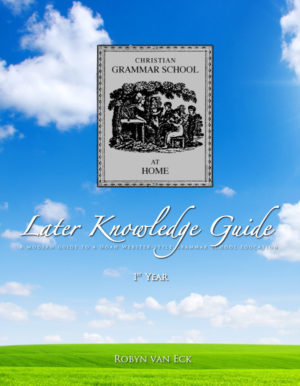Photo by Mariia Zakatiura on Unsplash
Question: …I’m considering adding [a popular Christian curriculum’s ancient history course] Creation to the Greeks to my cycle 1 plan [in Grammar of Grace]. Are you familiar with [that] curriculum? I feel like it could correspond very nicely and their plan would basically cover a lot of my read aloud‘s. Just curious what you know about them and if you had an opinion?
This is pure personal opinion here… I believe there is SO much room for each of us to have different perspectives and tastes, as our Lord made us all so varied and different from one another—so it seems to me that we parents will necessarily have different ideas for teaching our children, too, and that that’s part of our Lord’s good design for our children, so…! Okay, that’s my disclaimer.
Since you’re asking for my personal opinion… I’m noticing in the particular package you mention four main elements of the reading aloud books.
First
First, I see the Homer/Aesop/Greek mythology. I wanted to stay away from pagan mythology with my children (whether Greek, Roman, Norse, or whatever). We did read Aesop’s Fables (and you can pick up a copy for < $10), but I was CONTINUALLY telling the children that these morals were only good when they agreed with scriptures (and I would quote the appropriate scripture), empty and useless without our Lord, and downright wrong when they start talking about pagan gods. I’m not sure if I’ll do it again with the next round of young ones, but maybe, since I was able to apply scriptures every time—but I was adding those sorts of caveats to every single fable, to make sure the children didn’t separate morality from God’s law.
When it comes to Homer and other mythology, I didn’t want mine studying mythology at all, so we have kept the Homer, etc., out of our homeschool. It’s the kind of thing we might bring in, when they’re 17 or 18, and for the main purpose of dissecting and pointing out all of its problems.
Books I’d Suggest: I enjoyed The Story of the Greeks, by Christine Miller (revised from Helena Guerber’s original); it focused more on history than mythology, and didn’t require a lot of disclaimers from mom about how pagans are not good!!!! It’s not perfect, but if you’re looking for a suggestion like that, I think you’d like it. She’s got a whole series of these books, put out by Nothing New Press. The Story of the Greeks is also required history reading in the 1st Year Later Knowledge Guide (and TSOT Romans is in the 2nd Year LKG), so if you’re thinking of using those, you’d have nothing to lose in buying them now.
I’ve also heard wonderful things about The Mystery of History, and I bought it a few months ago. I haven’t read it yet, but, like I said, I like what I’ve seen, and Linda Lacour Hobar seriously has a big hurdle to overcome in my bias against textbooks, so for me to have both bought it and to think it looks good is really saying something, lol!
The Jacob Abbott Makers of History biographies, especially Cyrus, Darius, and Xerxes, are good. Once he gets to Alexander the Great and ones he wrote after that, he seems to fall into glorifying the conqueror too much for my taste… but he always at least finishes the book by condemning the conqueror as a man who wasted his life by killing, enslaving, and making miserable thousands of people’s lives for no good reason. The way he tells their stories is wonderful, and the fact that at the end, if not before, he gets around to condemning these guys, keeps these on my “not perfect but approved” list. I have learned so much ancient history from those biographies; Abraham Lincoln once said that everything he knew about history he’d learned from the Jacob Abbott biographies. Everybody was reading them, in the mid- to late-1800s. Note: The Romulus biography is almost entirely based on mythology, so that’s probably my least favorite of the series.
Finally, speaking of not using textbooks but instead using primary source history, when we read our Bibles to our children, the entire Old Testament is the very best history textbook we have for the time period of Creation through the Greeks, and it’s a primary source document! Maybe that’s a no-brainer to you, but just in case you hadn’t thought of it that way, I thought I’d mention it.
Second
The second element (speaking of which…!) is the Bible portion. I’m guessing you’ve noticed, but I prefer reading the Bible the old-school Reformation/Early America way with the children—straight through. So we don’t use the story Bibles, and don’t jump around to the “best” stories and skip the stuff in between. I’m completely in love with the Grammar of Grace Bible reading plan; it is AMAZING, in my opinion. You might just call me biased on that one, but it’s one of the core things we do in Grammar of Grace, and I LOVE that my children grow up hearing the WHOLE Bible read, without dumbing it down, with real grown-up words. It maybe doesn’t have as much bang for the buck, the first few days and months, but it sure yields dividends in the long run.
Third
The third element I noticed was Patricia St. John’s books. I bought those books when my oldest few were teeny tiny, and by the time they got old enough for me to read them to them, I had started steering in the more old-fashioned direction, so I’m sorry to say I actually haven’t read them! I’ve heard good things, but flipping through, with my growing perspective, I wasn’t impressed; I should read them, though, to be able to know them better!
Here’s how my perspective has changed on that front… Have you heard about how in Shakepeare’s day (which we would do better to call the Reformers’ days!!), the average English speaker had a daily working vocabulary of something like 38,000 words? Like, the Geneva Bible was written in everyday, easy language that average peasants could understand—that was the whole point! (The KJV, and Shakespeare’s plays, too.) And today, the average English speaker has a working daily vocabulary of something like 3,000 words. I mean, seriously, it’s that shocking. (That’s why we think the old books are hard!!)
So one of the core elements of how I choose books for my children is that I want them to have a richer vocabulary in which to form their thoughts and understand others—and since my husband and I and all of their friends don’t speak with that vocabulary in daily life, I employ books with fuller vocabularies and more complex grammatical structures to create a kind of imitation immersion for my children into the richer language that our forefathers grew up swimming in, when they were children.
One thing I keep constantly in mind is, “What were Reformers and early Americans doing with their children?” When it comes to this particular question, of complexity of language, there were no children’s books back then! And no TV, right? So after the day’s work was done, they would often read as a family, to relax and enjoy themselves, right? And they were reading all of these books that, today, we think are seriously hard! But the children loved it, and listened to them. And their children weren’t any smarter by nature than ours are! So I figure our children can listen to these books too. Grown-up books! Not grown-up in the sense of objectionable content, but grown-up in the sense of full, mature use of the English language, not dumbed down for them.
So. In a word, I have a bias toward old books, and against new books, simply because our reading time is the only time when my children can hear that more complex language in a natural setting, as if it were what everyone around them was speaking, so that as they grow up, those books don’t seem difficult, but natural, and they have the fuller, richer English language at their disposal.
Obviously, that hasn’t made me write or talk in a stuffy way that no one can understand, and we don’t teach our children to be weirdos, either!!! It’s just that we don’t find that language difficult anymore, and all of this wisdom from past generations is more available to us, because the language is not so foreign to us.
I also see that part of the aim of the humanists, when they took over education, was to remove huge portions of our vocabulary and to dumb down our understanding of the language… and the result is that we can’t read the writings of faithful Christians from the past 2,000 years, because we find it too hard; we only read Christians from the past 40 years, or so.
Long story. Feel free to take it or leave it, as seems appropriate for your homeschooling family!!!! But you asked for my opinion, so there’s that bit of it.
Fourth
The fourth element is the library books.
I’ve looked over [the popular Christian curriculum]’s reading lists in the past, and wasn’t thrilled, but I don’t remember any specifics.
As a rule, if my teachers in school told me it was a classic and had us read it, I have since discovered objectionable bits about it and rejected it for my children. In fact, the libraries have gotten so bad that if it’s a book that can be found in a typical library, it falls under that category, too. (They used to at least have great old books gathering dust on their shelves, but it seems that in the past 20 years, or so, the libraries have gotten rid of all the really good old ones in their library sales.)
For example, I have Winnie the Pooh, Stewart Little, James and the Giant Peach, Alice in Wonderland, Anne of Green Gables, Little Women, the Little House books, and so much more on my shelf gathering dust. Not to mention the Mark Twain and Nathaniel Hawthorne that long ago went into the trash, lol!
Here’s my main thought here (and this far outweighs the richer language thing, in my thinking)… In all of the books that the world calls “classics”, there is no God. For real. In many of them, there is not even a father and mother!! In Charlotte’s Web (which I LOVED as a child), there is no praying to God for help in trouble; parents do not guide and shepherd children; the family group isn’t a father, mother, and siblings, but a group of “friends”; and there is certainly no law of God that must be obeyed and a judgment to come, for which children learn they must prepare themselves!
Are you familiar with the idea of the “universe” of a book? Think of the Marvel Cinematic Universe, or the universe of The Lord of the Rings, or the universe of Narnia. Every author writes in a universe, and in every single “classic” that is on your typical booklist the author has constructed a universe in which the Christian God does not exist.
In Winnie the Pooh, there is no God. In Christian curriculums like [that one], I usually see a couple of good Christian books (or “children’s versions” of good Christian books), but also these “classics”, in which the characters are living and thinking and dealing with situations in a universe in which there is no God. There might be a church scene or two. But if it’s there at all, it’s only a part of earthly culture. There is no living God in these books.
When our children read these books, it teaches them to think that way, and to put their “Christian thinking” into a little box, separate from real life.
And then there’s the straight-up pagan ideas in so many of the books…!
Books I’d Suggest: Well, so, I prefer to read books to the children where the characters pray to God for help, get counsel from the Bible, have loving and wise parents who guide them well, and also receive good teaching from their pastors.
Between, maybe, 1850 and 1880, there were lots of children’s books being written, and they were written to present children not with fantasy stories or adventure stories, but to present children with stories of children who lived in the real world, with real temptations, who learn to overcome sin and hardship through faith in Christ. Those are lovely; Lamplighter Books specializes in these books; we talked Grandma into the book of the month club there for us. 🙂
Also, classics like The Pilgrim’s Progress, Robinson Crusoe, and The Swiss Family Robinson (the originals, not updated or simplified versions) are wonderful.
There are also many wonderful missionary biographies and autobiographies from the 1800’s that are wonderful to read aloud to the children; we’re just finishing John G. Paton’s autobiography now; the children love it!
If you haven’t read it yet, your children will love Trial and Triumph, and Adventures of Missionary Heroism, available from Generations.
The G.A. Henty historical fictions are great. For an easier read—modern language—but great history, Douglas Bond writes wonderful historical fiction.
Final Thoughts
But, again, please don’t take these ideas as dogmatic rules I believe should be imposed on other families. Since you asked my opinion, this is it; it’s not Gospel truth, and there are many godly families using very different ideas for choosing what books to read to their children!
…
Thanks for dropping by; please keep us in prayer!
Recommended Resources
-

Grammar of Grace
Price range: $89.00 through $148.00 Select options This product has multiple variants. The options may be chosen on the product page




